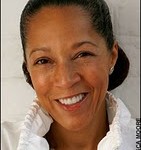The general election provided a good result for race relations with the British National Party failing to win a single parliamentary seat and it provided a fantastic result for black and minority ethnic (BME) communities who saw the number of black and Asian MPs rise from 14 to 27.
The election has provided BME communities with an increase of black and Asian MPs in parliament from 14 to 27.
Organisations like Operation Black Vote, (OBV) which has been tirelessly campaigning for BME communities to vote and participate in the political process has helped produce this result by organising events like the one they held on April 29, called Black Britain Decides, at the Methodist Central Hall in Westminster, central London, where a black audience questioned the main party leaders on issues such as Stop and Search and the DNA database.
Priti Patel became the first Asian female Conservative to win a parliament seat in the constituency of Witham. Shabana Mahmood became the first female Pakistani MP to be elected for Ladywood in Birmingham, and Helen Grant has become the first black female Conservative to win a seat in the House of Commons by being elected in Maidstone. Also, Chi Onwurah of the Labour party became the first woman of African descent to win a parliamentary seat.
Overall, Labour now has 16 MPs from BME backgrounds and the Conservatives have 11 in parliament. Disappointingly, the Liberal Democrats have yet to select a single MP from a BME background for a winnable seat.
The challenges for BME MPs
The challenges which BME MPs face in parliament is significant. Not only do they have to represent all of their constituents regardless of race, religion or gender, they are also faced with a massive responsibility to address the disproportionate discrimination which effects the lives of of the BME communities in their constituency.
As it stands BME communities live in the most deprived areas in Britain and face racial discrimination in employment, the criminal justice system and education. (Read BME voters should vote for change over much of the same)
The challenge for BME MPs is to address these concerns in parliament boldly and honestly. One of the concerns is that some BME MPs tend to distance themselves from race and race politics once they are elected.
For example, it was disappointing to read an article by Julian Whittle on the News & Star website, in which Helen Grant’s mother mentioned that race was not a big issue for her daughter. (Whittle: News & Star: 4 May) It would by quite surprising to hear a female MP mentioning that gender was not a big issue for her, or a disabled MP saying that disability is not a big issue. The fact is society is unequal which is why various groups are underrepresented and treated unfairly and representatives from these groups must champion these causes to address these inequalities in society.
Conservative MP, Priti Patel mentions on her webpage how she believes in putting Britain first when it comes to issues like immigration which is another point of concern raised by BME MPs once elected. When it comes to the issue of immigration it is time for a sensible debate based on the facts and not the usual ‘them’ and ‘us’ discourse in which the British media and MPs have usually discussed this issue dishonestly.
If BME MPs are not willing to challenge the dominant, often racist discourse of parliament then it begs the question are they really worth the votes from BME communities?
One such MP who challenged the dominant, white discourse of parliament was the late Bernie Grant, who was the Labour MP for Tottenham in 1987 and died on April 8 2000. Grant often challenged the status quo and stood up for many issues which effected BME communities in his time. These are the type of MPs that BME communities need fighting in their corner; and this not to say that BME MPs should ignore or neglect the concerns of their white constituents, but rather as BME members of the government it is their duty to promote a harmonious multicultural society, and this will not be achieved while some whites believe that they are the underdogs in their own country. The truth must be to told and BME MPs are in a unique postition to not only tell it but also change the usual right-ring discourse which pits black against white in this country.
The increase of BME MP’s is to be celebrated from a sober perspective, however let us first see where it leads.
For further research:
http://www.guardian.co.uk/politics/2010/may/07/black-minority-ethnic-mps-2010
http://www.newsandstar.co.uk/news/ex-carlisle-mum-wins-safe-seat-to-become-tories-first-black-woman-mp-1.703485?referrerPath=/news-round-up-1.50001
http://www.priti4witham.com/about





The author of this article said `…it was disappointing to read an article … in which Helen Grant’s mother mentioned that race was not a big issue for her daughter. … It would by quite surprising to hear a female MP mentioning that gender was not a big issue for her, or a disabled MP saying that disability is not a big issue. The fact is society is unequal which is why various groups are underrepresented and treated unfairly.’
Firstly colour and disability are simply not comparable. Secondly, the mean average experience of a `group’ only exists in the world of statistics and will least affect the exceptional individuals within a `group’.
Strong affiliation to groups best suits people who are unexceptional. Well done Helen Grant for not defining strongly by race – most outstanding people these days are not conformist and rigidly group-oriented, whatever their colour or background.
[…] This post was mentioned on Twitter by Runnymede. Runnymede said: So, followers, the grim weather and uncertainty over govt calls for one thing – a #brightside day. Let's begin with… http://bit.ly/9G2wh6 […]